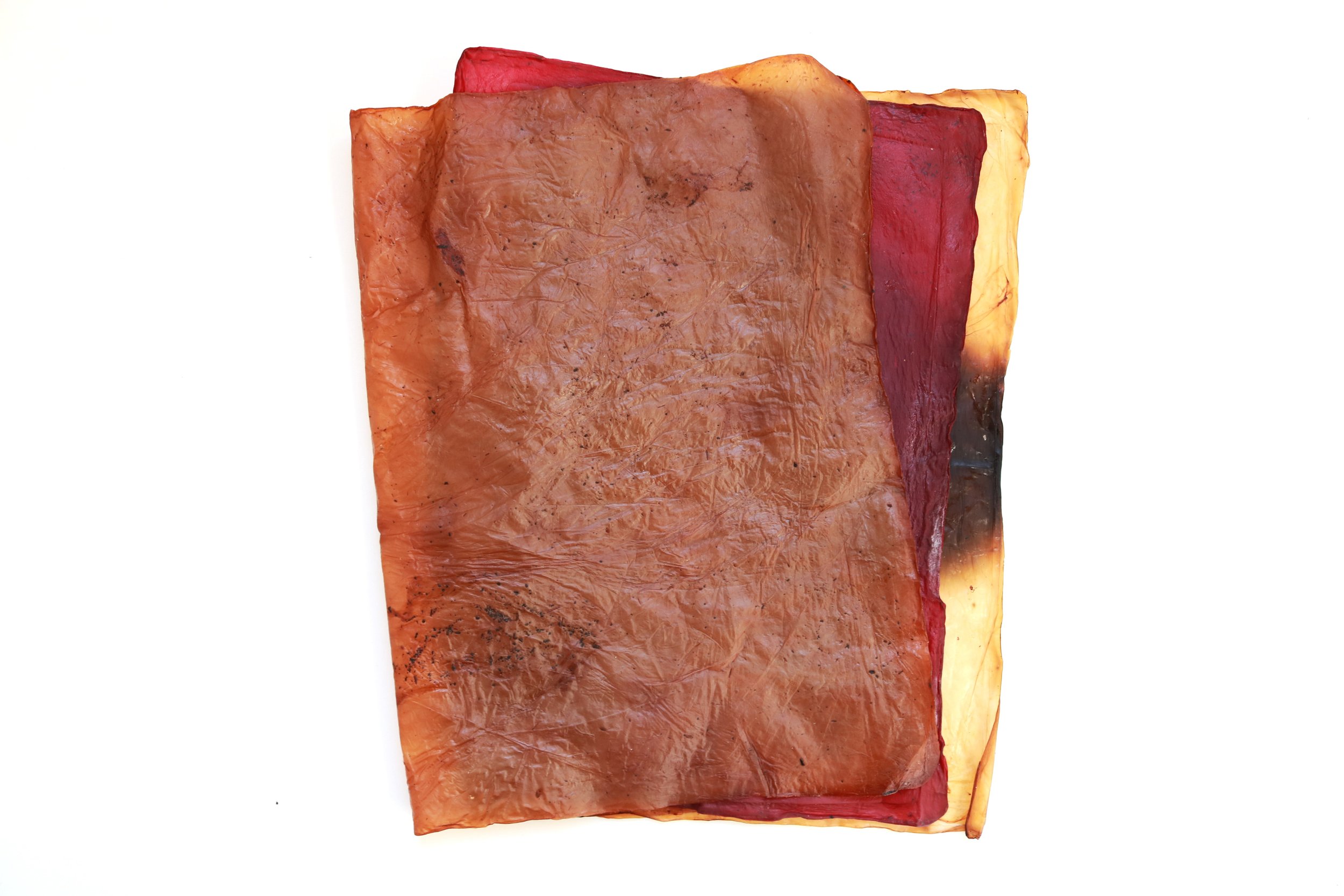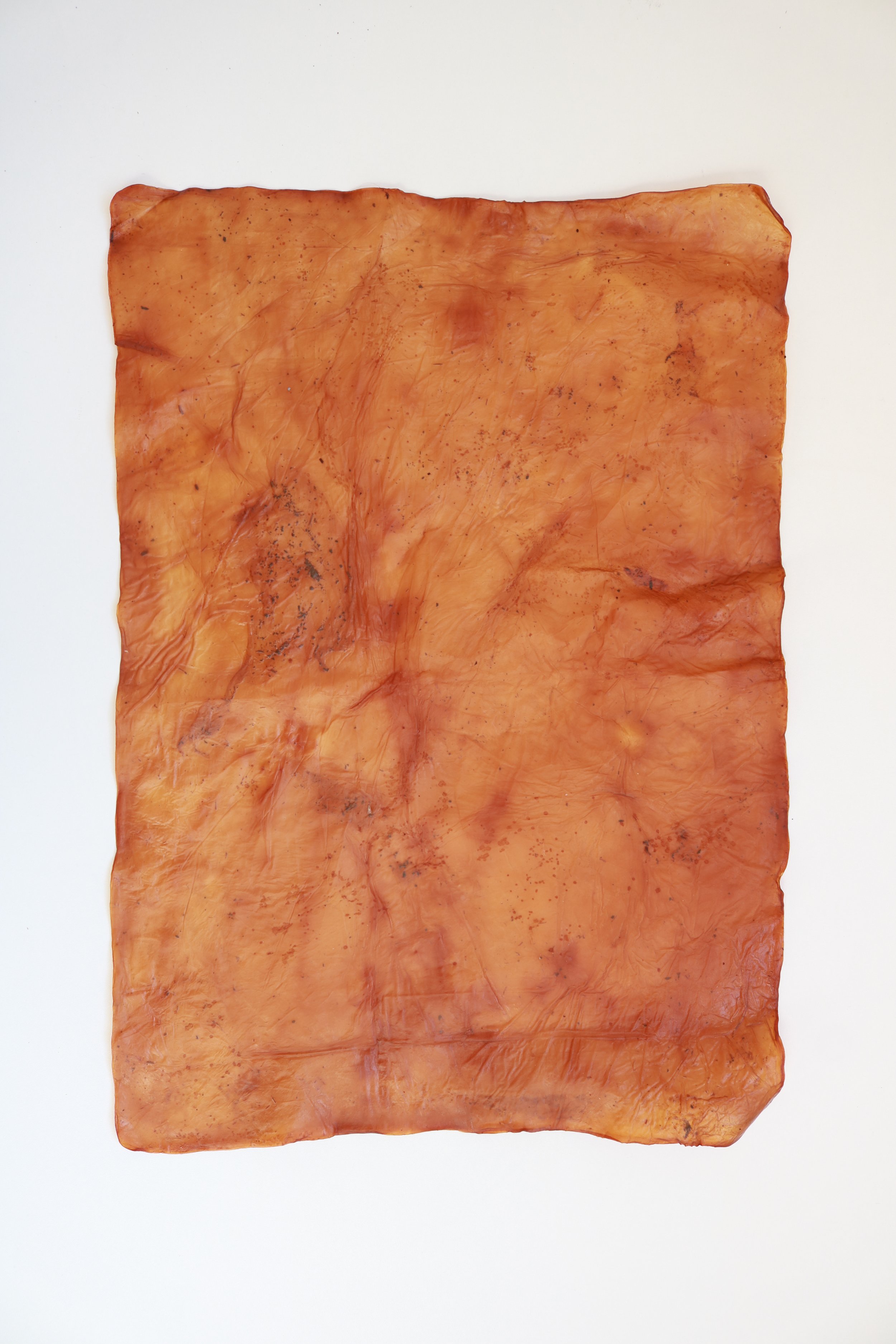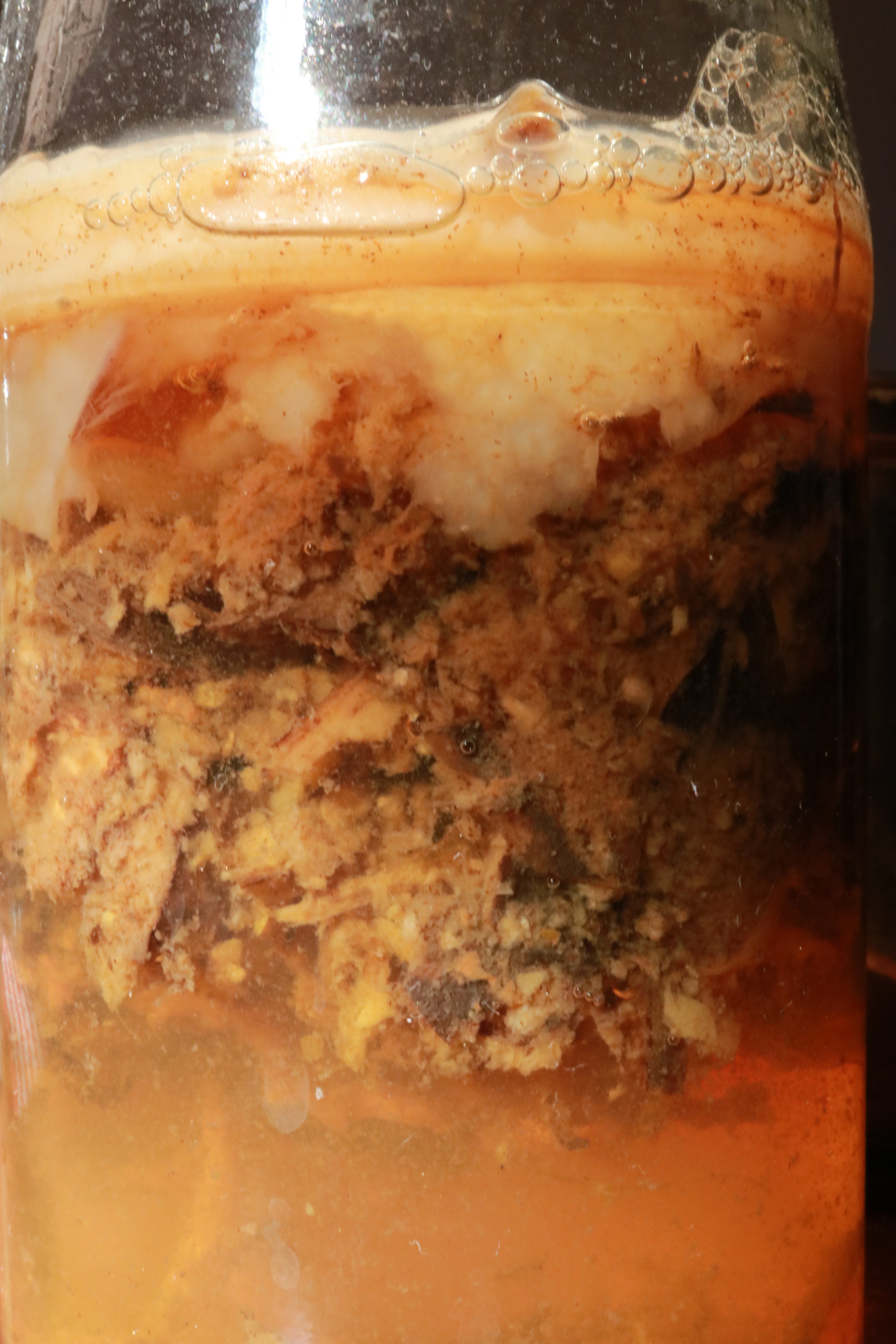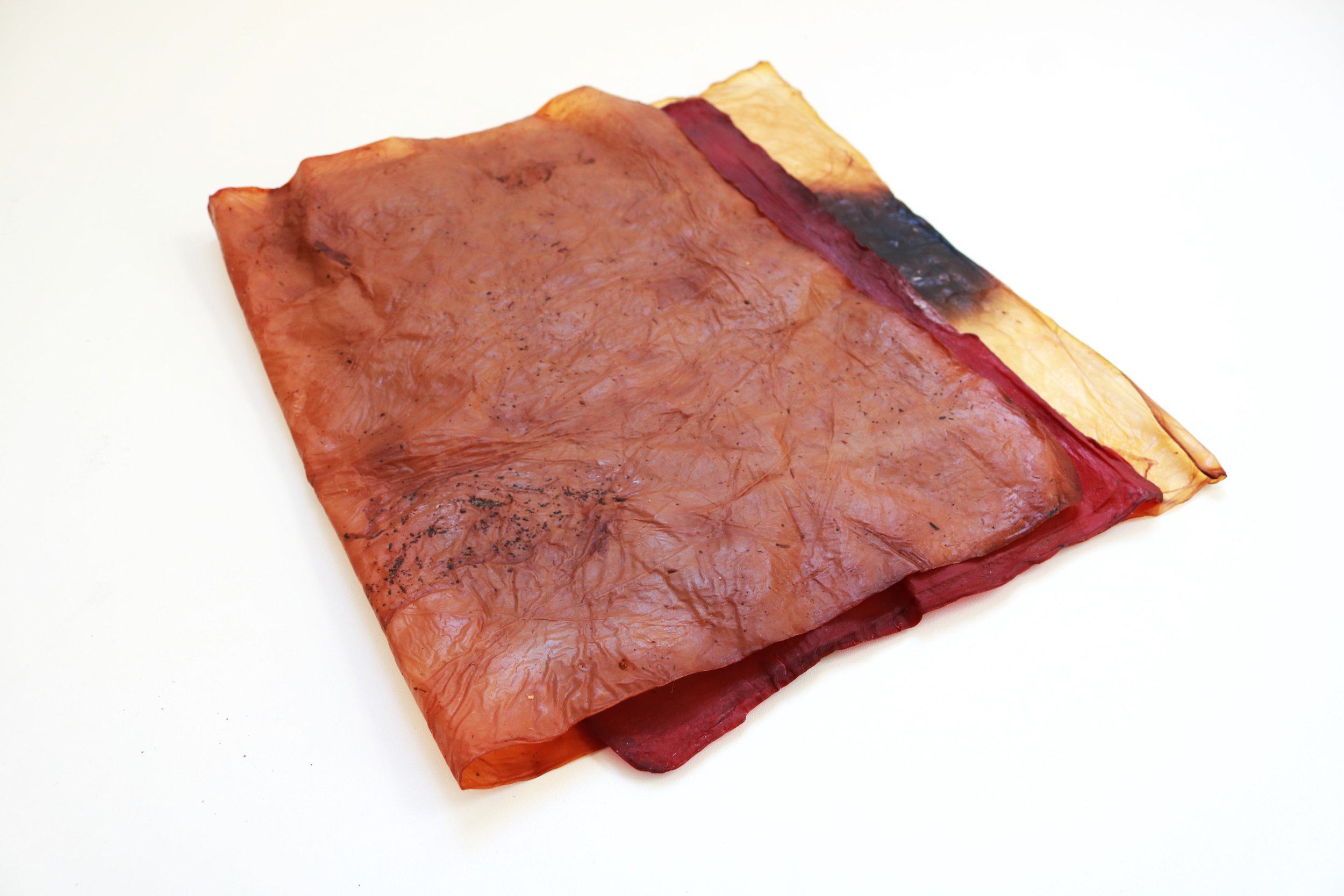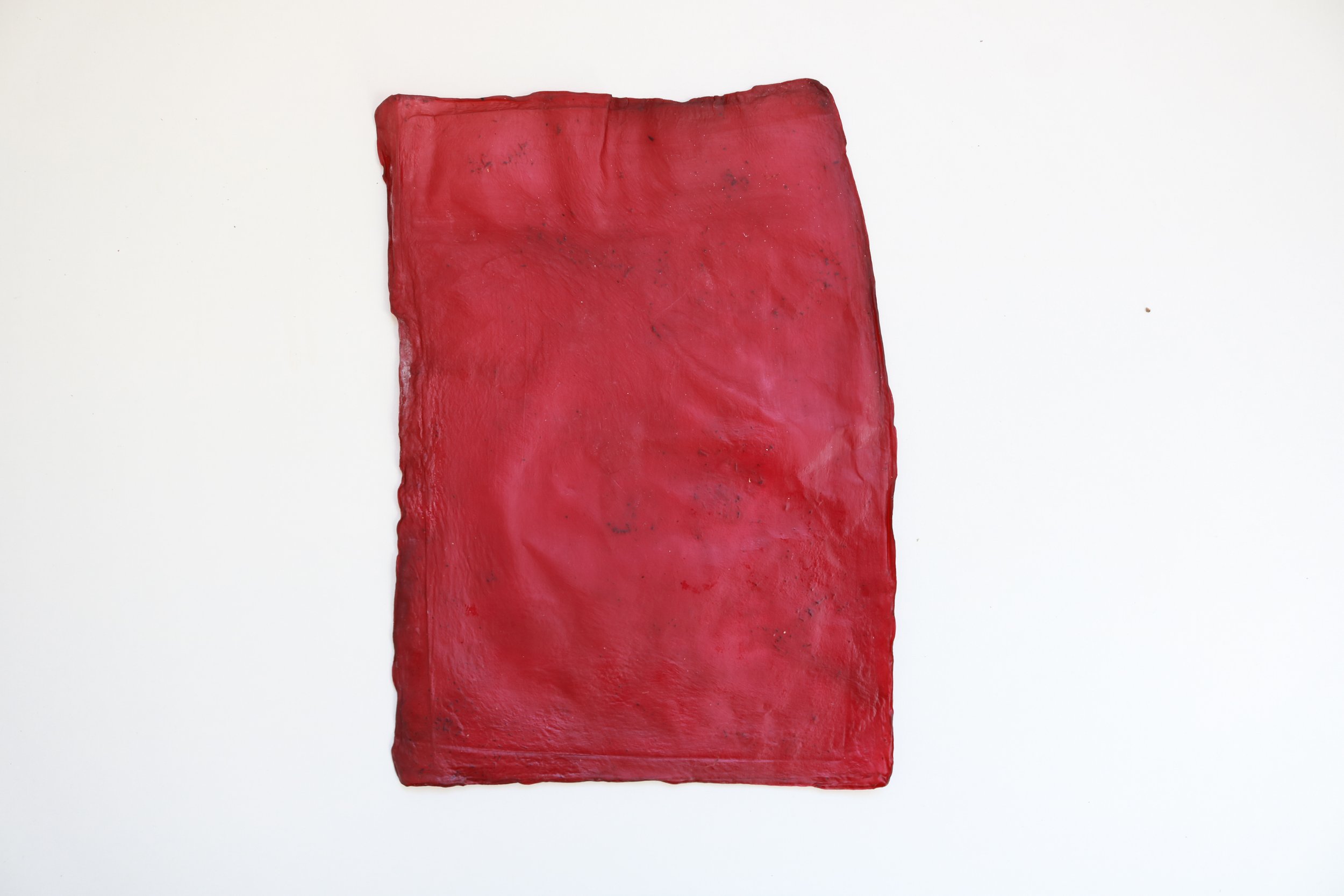Vanessa Falasca's research at the Academy of Fine Arts of Venice explores food as a cultural entity, transforming food leftovers into innovative materials. Her notable work includes a jacket made from scoby bio-leather. Falasca’s designs address ethical and psychological implications, linking food to identity and emphasizing material culture's role in human existence.
SCOBY
Feb 13, 2024
Materials
Connetion : +12531
Shares : 5323
Vanessa Falasca's innovative research at the Academy of Fine Arts of Venice centres around the concept of food as a "cultural entity." She experiments with creating new materials from everyday food leftovers and traditional recipes. A notable creation of hers is a unique jacket made from scoby, a bio-leather developed from fermented tea. This piece, embellished with a ring and a crown, exemplifies her creative vision. Falasca's work transcends traditional fashion design, engaging in a deeper conversation about the ethical and psychological implications of material use.
She focuses on skin as a medium of transformation, addressing themes of change and violence. Her approach connects tangible materials with intangible concepts, emphasizing that food, as a vital part of human sustenance, is inherently linked to our physicality and identity. The materials she develops are thus influenced not just by functionality but also by personal and cultural narratives, showcasing a profound understanding of the relationship between material culture and human existence.
Vanessa Falasca 在威尼斯美術學院的創新研究圍繞著食物作為「文化實體」的概念。 她試驗著從日常食物剩餘和傳統食譜中創造新材料。 她的一項顯著成果是用茶菌(一種發酵茶製成的生物皮革)製成的獨特夾克,這件作品還飾有一個環和一個冠,體現了她的創意願景。 Falasca的工作超越了傳統時尚設計,深入探討材料使用的倫理和心理意義。
她專注於以皮膚作為變化的媒介,討論變化和暴力的主題。 她的方法將有形材料與無形概念結合,強調食物作為人類維持生命的重要部分,與我們的物理身分和身分密切相關。 她所發展的材料因此不僅受功能影響,也受個人和文化敘事的影響,展現了她對物質文化與人類存在關係的深刻理解。
Vanessa Falasca
Vanessa Falasca was born in Prato. She spent her entire childhood surrounded by nature and art, even though she initially couldn't appreciate them. From a young age, encouraged by her grandmother, whom she used to help, she developed a special relationship with food. This eventually led her to aspire to become a cook.
As she grew older, she became interested in art and its various forms. She started exploring drawing, painting, and sculpting, finding ways to create through different materials and mediums. In 2020, after graduating in figurative art from the Policarpo Petrocchi High School, she moved from Tuscany and settled in Venice, where she attended the Academy of Fine Arts.
She began her journey by exploring human figures and life drawings, trying to determine her interests and the best ways to express them. After turning vegan, animal ethical issues became a significant source of her questioning and thoughts, which she tried to process into images and pictures. Initially, she focused on overfishing, leading her to explore ocean life, its creatures, and our bond with it as human beings.
While experimenting with unconventional materials, she stumbled upon bioplastic studies, which coincided with her research on archaeology. Her final bachelor year focused on the possibilities and symbolism of food as a "cultural entity," experimenting and creating new materials from daily leftovers and traditional recipes.
After graduating with a BA, she started travelling to connect with different cultures and culinary tastes, taking her practice abroad and continually challenging herself.
Vanessa Falasca 出生於普拉托。她整個童年都在大自然和藝術的環繞中度過,儘管她起初並不懂得欣賞這些。自幼在祖母的鼓勵下,她開始幫忙,逐漸與食物建立了特殊的關係。這最終促使她立志成為一名廚師。
隨著年齡的增長,她對藝術及其各種形式產生了興趣。她開始探索繪畫、繪圖和雕塑,尋找透過不同材質和媒材創作的方法。 2020年,她從Policarpo Petrocchi高中畢業後,在圖像藝術專業畢業,搬離托斯卡納,定居在威尼斯,並在威尼斯美術學院就讀。
她開始探索人體和生活繪畫,試圖確定自己的興趣和表達方式。轉變為素食主義者後,動物倫理問題突然成為她思考和質疑的主要來源,她試圖透過圖像和畫作來處理這些問題。起初,她特別關注過度捕撈,這使她開始探索海洋生物、其生物及我們作為人類與海洋的連結。
在實驗非常規材料時,她偶然發現了生物塑膠研究,這與她的考古學研究相符。她最後一年的學士研究集中在食物作為「文化實體」的可能性和象徵意義上,實驗並創造了由日常剩餘物和傳統食譜製作的新材料。
獲得學士學位後,她開始旅行,與不同文化和烹飪口味接觸,將她的實踐帶到國外並不斷挑戰自己。
All the images are courtesy of Vanessa Falasca
